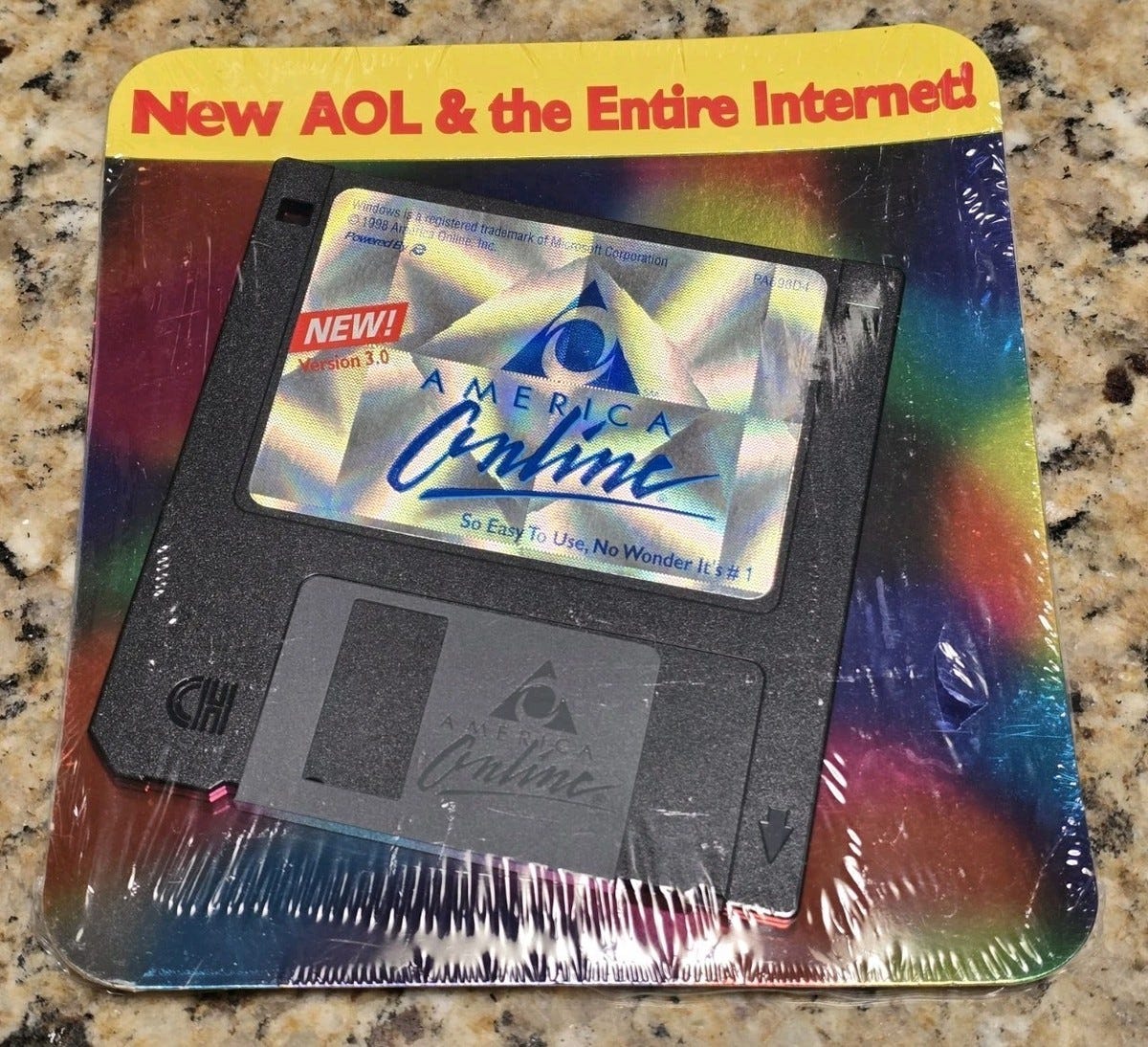Turning the Dial (-Up) (Off)
“NO don’t pick up the pho-”
Once upon a time, when Starbursts were Opal Fruits and the average price of a house in the UK was £67k, we used to get the internet through the letterbox. Every magazine, cereal box, and educational establishment was giving out floppy discs that offered The Entire! Internet! Free! For 50 hours!
But that wasn’t enough for AOL. No: …


